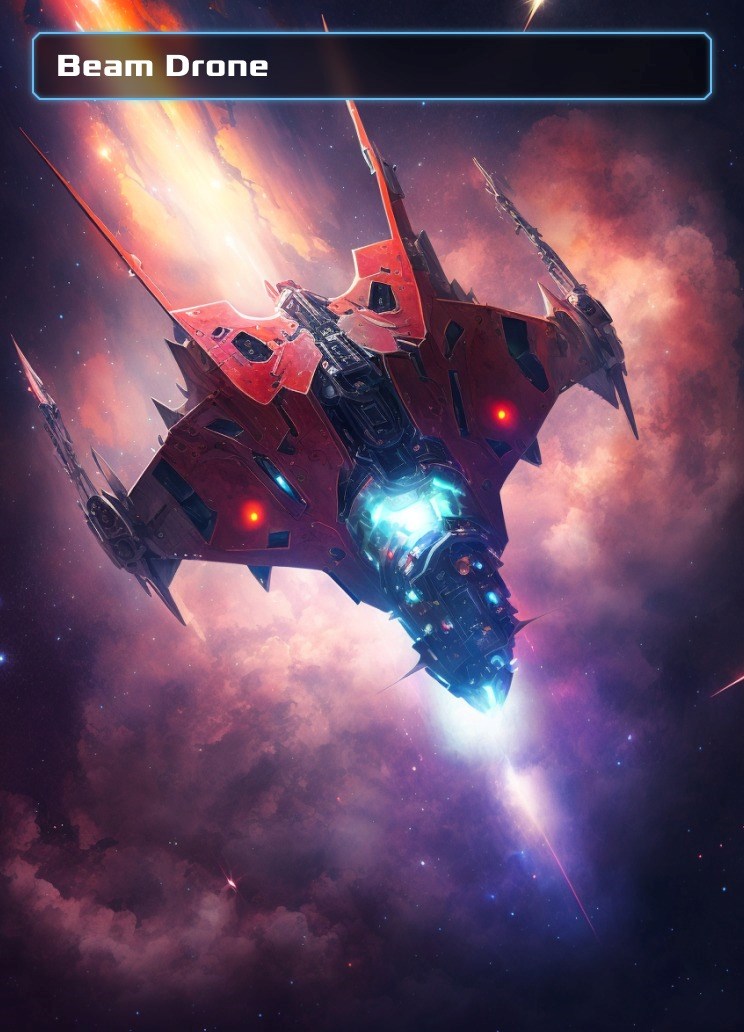YORKTON - This week’s print and play offering is a solo game from Canadian creator Martin Goudreault; Warp Lancer.
From the designer via Board Game Geek; “In this solo rogue-like card game, you are a Warp-Lancer, a space captain for hire. You and your crew have been entrusted with a vital mission: deliver crucial information to the Federation headquarters before the Devot's armada can destroy what remains of society.”
In regards to theme it’s space opera, with a little grit.
During your turn, draw a ‘beacon’ card to determine what happens when you exit light-speed warp. Roll a die and follow the result in the case of an event or fight a ship with your equipped weapons and systems.
For a solo offering it’s as expected a game reliant on card draw and dice rolls.
“You'll need to manage your available energy to power-up the appropriate systems for the situation at hand, keep track of your currency, missile ammunition, warp fuel and crew to survive the five sectors leading to the final boss fight,” noted the description.
Along the way you can “find or buy new weapons and systems to upgrade your ship if you want to keep your crew alive and your ship's hull above the breaking point. Space is dangerous and victory can only be attained by defeating the enemy's flagship at the end of your journey.”
So as often is the case an email was fired off to the creator for some insights into the game.
When asked about the best element, Goudreault replied; “Warp-Lancer borrows great mechanics from different games. The difficulty increase from Mini-Rogue, the two cards choice from Iron-Helm, the weapon mechanics from FTL (Faster than Light). I think what is setting Warp-Lancer apart is the energy manipulation. Every turn, you need to make some choices and optimize. Which weapons to power-up, should I put energy in shield or engine? It's an exercise in optimization at every turn. What does this game offer others don’t? - I won't hide it, it will scratch your FTL itch in board game form. And for those who don't know FTL, it's a tough rogue-like experience with choices and optimization galore.”
But why PnP?
“I want everyone who wants to try it to do so,” said Goudreault. “PnP allows me to make it available all over the world without initial costs and minimal maintenance.
“It also allows me to translate it easily to many languages. Being a team of one with $0 budget, PnP is the best way to put it out there.”
Generally, Goudreault said he was trying to build a game that he himself was searching for; “to create a game that I was searching but didn't find anywhere. There were some spaceship management, space rogue-likes, and solo science-fiction stuff out there, but nothing was scratching that itch. Asking around, I wasn't the only one that thought that too.”
So how well did Goudreault do?
The art, while AI-generated, (a sin to some), looks fantastic. I’ll leave the AI art debate to others.
As a rather simple build – it’s a card game you print/cut/sleeve and play – it’s among a raft full of games any PnP fan can do. I will note that some cards are text heavy and that means smallish print – so beware.
There didn’t seem to be rule glitches – which is good because you can’t turn to others at the game table to hash out questions – remember this is a solo effort.
The game really isn’t a quick one, so pick a rainy afternoon for this one; which will be a fine way to wait out the cloudy afternoon.






